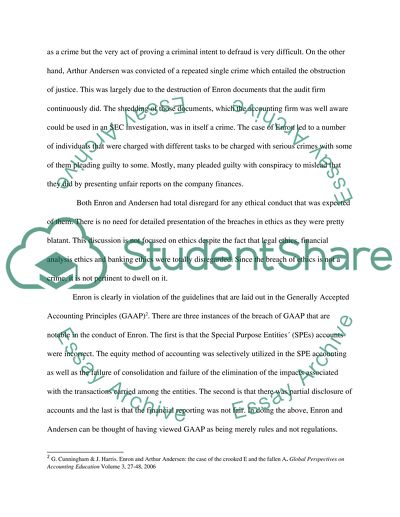Cite this document
(“The Case of Enron and Arthur Andersen Essay Example | Topics and Well Written Essays - 1500 words”, n.d.)
Retrieved from https://studentshare.org/finance-accounting/1442153-auditing-problems-and-three-types-of-consulting
Retrieved from https://studentshare.org/finance-accounting/1442153-auditing-problems-and-three-types-of-consulting
(The Case of Enron and Arthur Andersen Essay Example | Topics and Well Written Essays - 1500 Words)
https://studentshare.org/finance-accounting/1442153-auditing-problems-and-three-types-of-consulting.
https://studentshare.org/finance-accounting/1442153-auditing-problems-and-three-types-of-consulting.
“The Case of Enron and Arthur Andersen Essay Example | Topics and Well Written Essays - 1500 Words”, n.d. https://studentshare.org/finance-accounting/1442153-auditing-problems-and-three-types-of-consulting.


